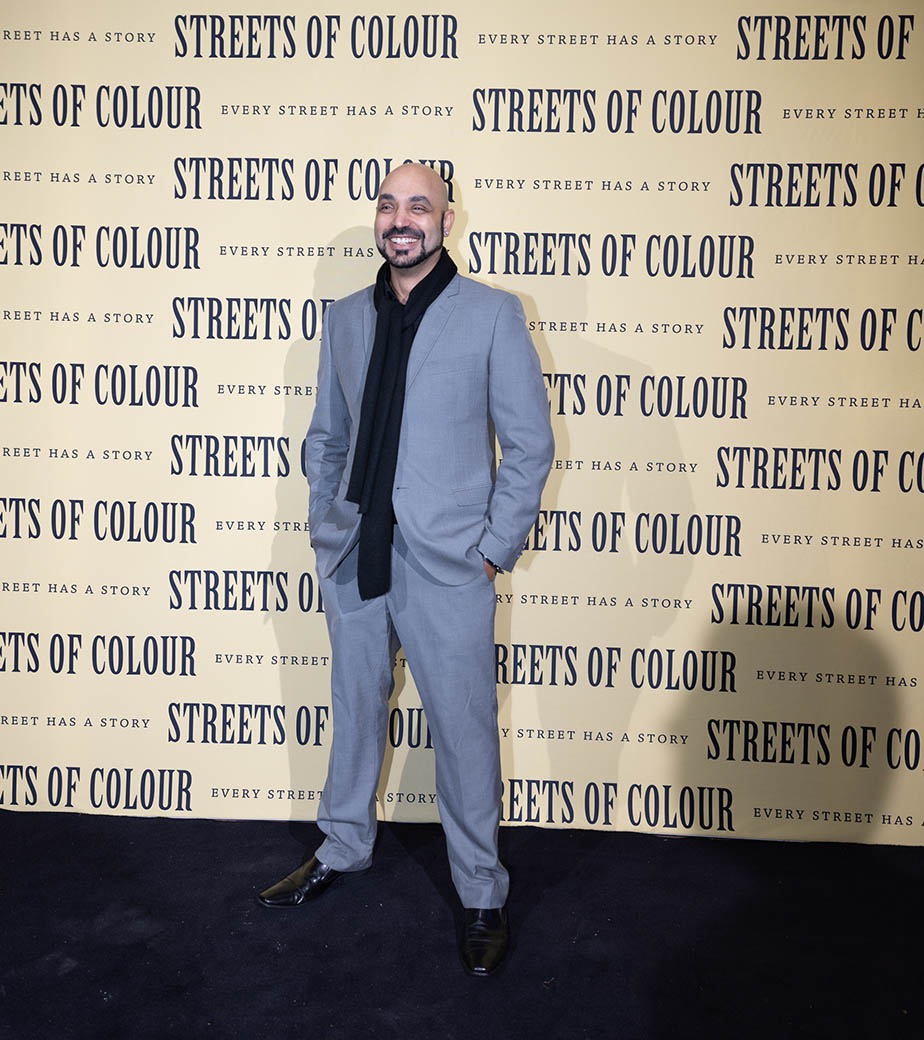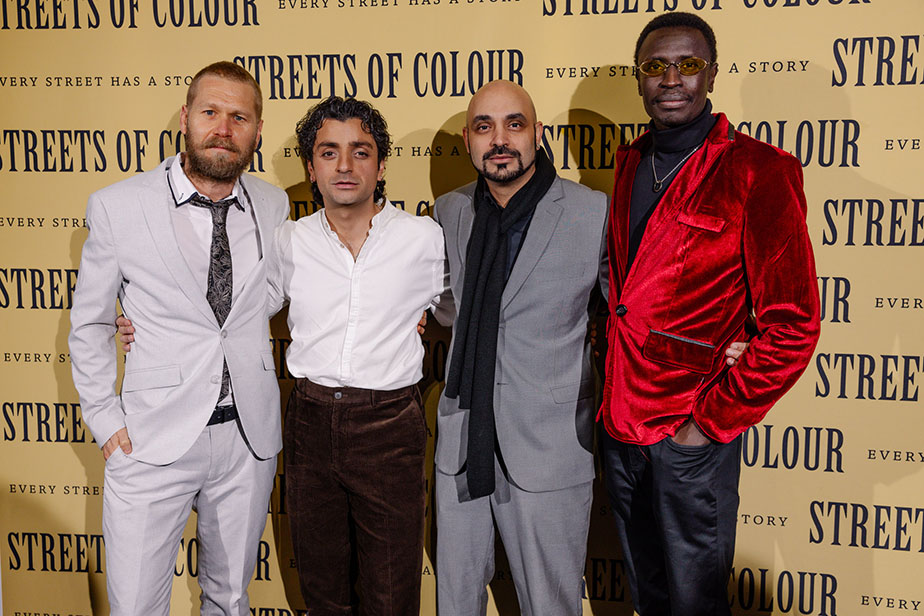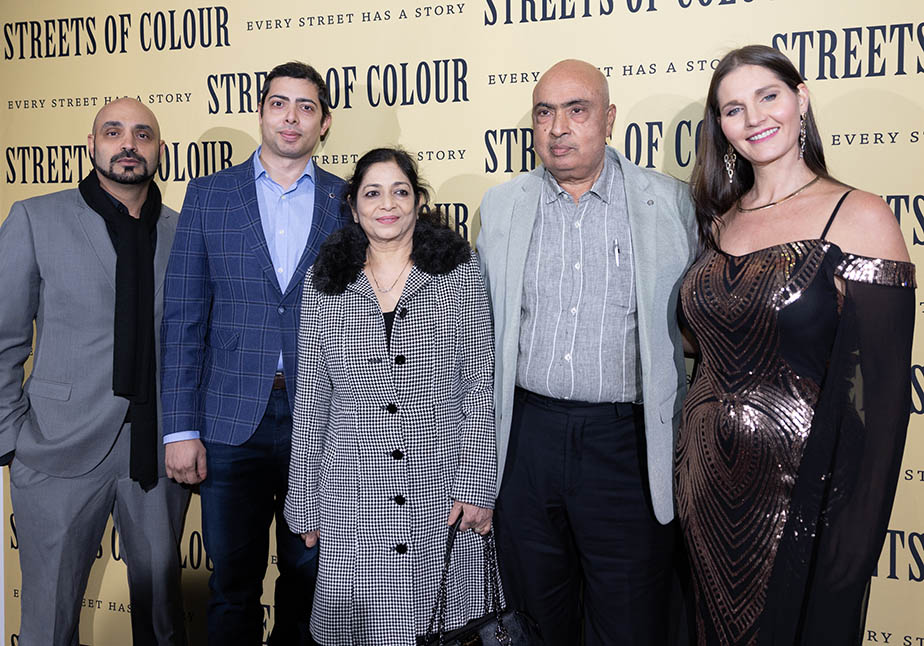
In the dynamic world of filmmaking, where creativity meets technology, few stories are as inspiring as that of Ronnie S. Riskalla. An acclaimed Screenwriter and Director, Riskalla’s journey began with a humble Betacam camera and blossomed into a career that has left an indelible mark on the global cinematic landscape. From his early years of producing films as a young child to his pivotal role in Hollywood’s entertainment juggernaut, Riskalla’s trajectory is a testament to passion, dedication, and the pursuit of excellence.
Riskalla’s passion for storytelling ignited during his formative years. Armed with only a Betacam camera, he embarked on a creative journey that would shape his destiny. Despite his young age, Riskalla showcased an innate talent for producing films, laying the foundation for what would become a remarkable career. His early experiences ignited a spark that would guide him through cinema’s challenging yet rewarding world.
Riskalla’s commitment to his craft led him to pursue formal education in film and drama. High School provided a platform for him to hone his skills, performing in talent shows, police youth clubs, and various school theatre productions. Following this, he attended a private film college, laying the groundwork for his artistic development.
The turning point came when Riskalla enrolled at The Australian Film, Television & Radio School. Here, he found his true calling behind the camera. The school nurtured his passion and equipped him with the technical and artistic prowess required to excel in the industry. Riskalla’s hunger for knowledge led him to further studies at UCLA, where he had the privilege of learning from Hollywood’s finest professionals.
Riskalla’s journey encompassed roles that spanned both the creative and technical aspects of cinema. His career as a Projectionist & Technical Manager in the cinema industry granted him unparalleled insights into the world of film exhibition. From the days of 35mm projectors to the digital projection age, Riskalla stood at the forefront of cinema’s evolution, running regular screenings and orchestrating special events that brought joy to Australian audiences.
Riskalla’s stint with Deluxe Entertainment, an American company deeply rooted in Hollywood history, was a testament to his seamless transition from the projection booth to behind the camera. His role involved overseeing the quality control and digital delivery of numerous Hollywood films across the Asia-Pacific region. This experience further refined his understanding of the cinematic craft and solidified his connection with the heart of the industry.
Riskalla’s creative spirit found a profound outlet with the experimental feature film “The Day Hollywood Died.” Premiering at the ECU Film Festival in Paris, the film showcased his artistic vision and marked his entry into the world of filmmaking in a different capacity.
In 2009, Riskalla founded Rising Pictures, a Film Production & Distribution company that sought to amplify innovative narratives. His entrepreneurial spirit led him to secure distribution rights for the ANZ and Pacific Islands for the feature film “Mooz-Lum,” starring Danny Glover and Nia Long. A tireless writer and director, Riskalla has diligently crafted seven feature film scripts, each a testament to his creative depth.
Riskalla’s latest venture, SkyCross Entertainment, reflects his unwavering commitment to storytelling. The upcoming release of his second feature film, “Streets of Colour,” underscores his dedication to addressing significant social issues through the lens of cinema.
FilmCentral magazine recently caught up with Riskalla to discuss his journey in the film industry, and here’s what went down:
Could you please tell our readers a brief background about yourself and how you started in the industry?
I’ve loved the moving image since the age of 4; my parents would tell me stories of how I was attached to the TV and even learned how to record my favourite TV shows and movies like Superman and Star Wars in the early 80s.
Throughout my childhood, I watched everything, recorded everything, and used my dad’s Betamax video camera through my childhood making short films and stop animation.
In high school, I was the guy who carried a video camera everywhere I went. I filmed everything. I wasn’t an athlete. I was a film geek.
I went on to study film and video in high school, short courses at my local PCYC and then went to a private film school when I was 17. I was young.
At 17, I also started a job as an usher at Hoyts Cinemas Mt Druitt whilst juggling film school. I was mesmerised by film, and when I laid my eyes on the bio-box (projection booth) in the cinema – I had a vision – I had to be a projectionist.
I kept asking the complex manager, and they said I was too young. I had to be 18. At the time, a manager allowed me to go up and learn projection on an unpaid volunteer basis. Three hundred hours later, I could do everything as a casual projectionist. I immediately got a job and became the first 17-year-old projectionist.
What is the most difficult part of your artistic process?
Not having enough resources due to funding or other factors. For example, not being able to really realise my vision because we couldn’t get a specific location, couldn’t afford the right cars, or being able to have the VFX needed, etc. Trying to match the vision in my head to what’s on the screen is always challenging, but you try your best with what you have to get as close as possible to your vision.

Do you try more to be original or to deliver to viewers what they want?
I think its a balance of trying to be original and having a unique voice; with a story such as this, I was careful to try and be authentic with the story because it’s loosely based on my experiences but also uses creative license to enhance ideas and make them original and stand-out. I think a writer/director must use his imagination to the fullest and try and use different angles. I believe I did this by creating an urban street film and mixing it with a subtle magical element using spirituality which gives it a touch of fantasy.
If you could tell your younger self anything, what would it be?
Make more films, create more, write more, spend more of your spare time learning the craft, and keep practicing and using those story-telling muscles.
What is your directing Kryptonite?
I don’t know if I have any, so to speak, but what I do believe is that I have the power of compelling storytelling, being able to move people through storytelling. I find that I walk away from films these days feeling nothing; it’s contrived, not compelling, not interesting, and they don’t evoke emotion. If I was to pick one thing – it’s evoking emotion using all the tools at my fingertips. I also have this innate intuition fuelled by knowledge. For example, I have been watching the Oscars since I was a child and consistently trying to seek out and watch the nominated films and then the ones that win.
Over the years, I made it a ritual to try and watch as many of the nominated films in the best film categories as possible, specifically in the acting categories. Every year I have a strike rate of 90 percent picking the winners because I take the time to watch the films and look at why they were chosen for that category. This year I almost got 95 percent, so I pride myself on constantly learning and studying films that help me understand what makes them great.
Tell us about why and how you came up with the story for your latest film, Streets of Colour.
I’ve always been a storyteller, making short films with my dad’s old clunky Betamax camera, so filmmaking is my passion, and telling stories is what I love to do. That’s the first thing.
Coming up with this story wasn’t hard. I was always planning to make a film about growing up in Western Sydney because I always thought it was underrepresented, and we faced many social issues growing up. I was bullied as a kid and teen for being dark-skinned and not looking like an Anglo-Saxon, so this was a traumatic experience, but as we all do, we grow up, and I put that behind me.
But the catalyst was that it happened later in my life as an adult when I was abused with vulgar racial slurs, which brought up the past trauma to the surface again.
I knew then that I had to write that into a story, and remembering what a great director once said, when you make a film as a writer, make a film about something you know and something authentic – so I did.
What do you hope the film will achieve?
I’m hoping it will do a few things, the film covers a few themes, and maybe I was being a little too ambitious with that.
Firstly, I want to spark a conversation on all types of racism, especially systemic racism, which can be used as a guise to stop people from different ethnicities from getting the opportunities they should. Secondly, I want people from different cultures to be able to embrace their beautiful culture and not run away from it like Tez in the film.
Thirdly, I want people to think more about this physical world and day-to-day life and learn more about what’s beyond this world.
I believe in a higher power, and no matter your beliefs or religion, be proud of your belief and faith.
I’ve had many magical things happen in my family that science can’t explain, so it set me on a path of learning and being open to knowing that God exists.
I want people to experience it through the film and make them think about why we are all here.
Lastly, the film is about growing up in a low-socioeconomic suburb that the media has loved to destroy its reputation over the years. I want the people reading this to realise that the areas we grew up in as much have their fair share of trouble – they also have a vibrant culture full of some of the friendliest communities you will ever meet. The people are kind, humble, and some of the hardest working in the Blacktown council area.
I’ve witnessed more kindness and humanity in Western Sydney than in any other area of Sydney. The generosity of people from “the area” is abundant, making the place great.
People need to stop demonising the area for a small minority that makes it bad. I hope the film shows all facets; the good, the bad, and the ugly – an authentic portrayal.
There are so many success stories that come out of the area. We have some of the most prominent artists coming out of Western Sydney, so I am here to say that no matter your adversities, you can conquer them. It doesn’t matter what your postcode is; you need to push harder.

What were some of the challenges and joys of making the film?
The challenges are always the long hours, and on top of that, having some health issues and a partial physical disability. Not being able to sleep much means your body and mind don’t repair, and in essence, the film suffers a little when you do that, as you’re not operating at your fullest.
Apart from that, it’s challenging for a director to have ten conversations simultaneously. It’s overwhelming having all these people ask what you want for makeup, camera, lighting, etc., and being able to give adequate time and respect to every person.
The joys of the film are the people you get to work with, being blessed to make a film based on your experiences, and sharing that with the world.
What is the best advice you have ever been given?
Learn your craft every single day. You must do one thing every single day that propels you forward. If you have a passion, there will be no excuses for getting this done, even if it’s five minutes towards bettering your craft.
What advice would you give to a newbie director who wants to make it in the industry?
Have passion, be enthusiastic, and don’t ever do it for the money because the money will come, and you will eventually have value.
If you’re telling a story, make sure that you at least evoke emotions – that means to make people laugh, cry, feel happy, scared, or anxious. You need to be able to make people walk away from a film feeling something. It doesn’t matter what it is – even getting your audience thoroughly entertained and excited is the key.
Your film doesn’t have to have a message, but it must make you feel something.
What are your future plans?
Currently touring with the film Australia-wide and attached to direct a movie next year, which hasn’t been greenlighted yet.
I’m also developing a true-crime TV series and two thriller/drama feature films as well as looking at a comedy feature film in the early development stage.
